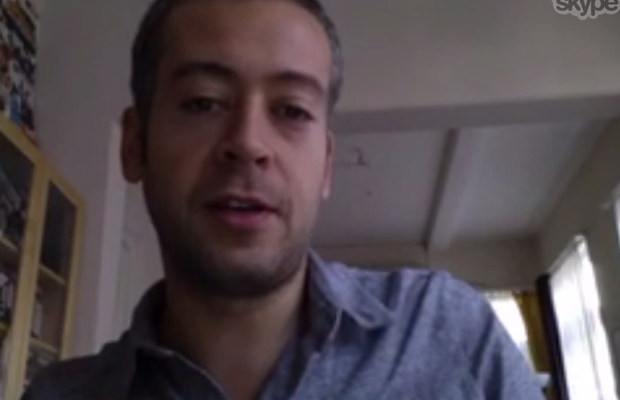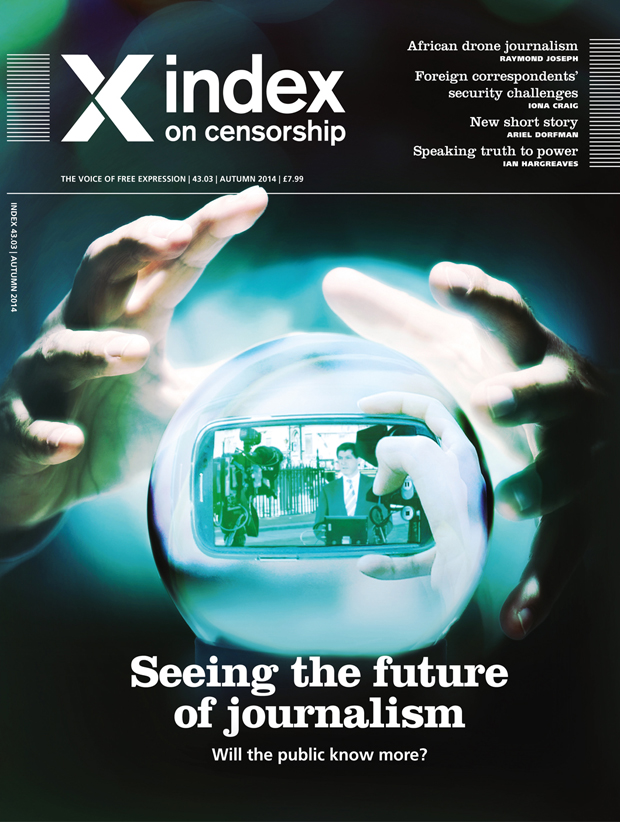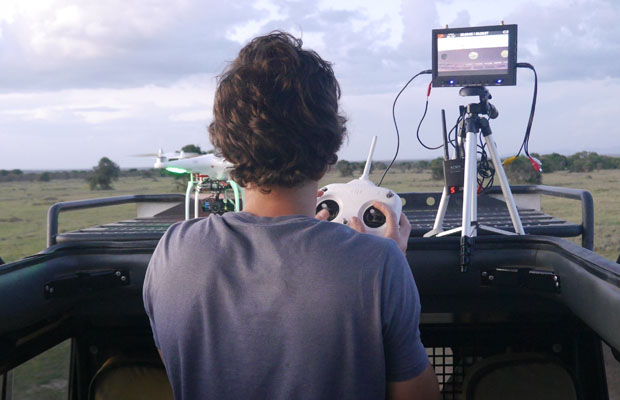[vc_row][vc_column][vc_custom_heading text="Packed inside this issue, are; an interview with fantasy writer Neil Gaiman; new cartoons from South...
CATEGORY: Magazine
Turkey: “An attack on women journalists is an attack on freedom”
Turkish novelist and contributing editor for Index on Censorship magazine, Kaya Genç, gives a short interview about the intimidation of female journalists in Turkey, read his full report in the winter issue
Free access to the Index on Censorship magazine app
In September, Index on Censorship magazine launched a social media campaign which invited its readers to nominate a place which was symbolic of...
Podcast: Neil Gaiman and Martin Rowson on censorship
In the next issue of Index on Censorship magazine, fantasy writer Neil Gaiman is interviewed by political cartoonist Martin Rowson about censorship, offence and how graphic novels stir controversy. Listen to the conversation here
Azerbaijan’s 12 months of paralysing attacks on civil society
Twelve months ago Rebecca Vincent and Rasul Jafarov wrote for Index on Censorship magazine on a crackdown on photojournalists in Azerbaijan. A year later Jafarov is in prison awaiting trial, and Vincent writes about the spiralling threats towards anyone who speaks out about democracy
Special Christmas offer: 25% off print subscription to Index on Censorship magazine
Ecuador: Why are critics being shutdown on Twitter?
A Spanish company — Ares Right — has been targeting the social media accounts of critics of the Ecuadorean government
The future of journalism: “the world is going to be less informed”
There was a lively debate about whether future journalism will make the public more informed at the launch of the latest Index on Censorship magazine at the Frontline Club
22 Oct: Eyes wide shut? Will the future of journalism mean we are better informed?
Don’t miss the launch of the autumn edition of Index on Censorship magazine
From drones to floating smartphones: how technology is helping African journalists investigate
Data journalist Raymond Joseph reports on how low-cost technology is helping African newsrooms get hold of information that they couldn’t previously track
Will the future of journalism make us better informed?
When the subject of the future of journalism is discussed it often turns to whizzy gadgets but the debate about whether the public ends up being better informed happens less often, says editor Rachael Jolley as she introduces the latest Index on Censorship magazine
The future of journalism: Latest issue, autumn 2014
[vc_row][vc_column][vc_custom_heading text="The explosion of social media, the rise of citizen reporters, the dangers of freelancing in a war zone,...
A quarterly journal set up in 1972, Index on Censorship magazine has published oppressed writers and refused to be silenced across hundreds of issues.
The brainchild of the poet Stephen Spender, and translator Michael Scammell, the magazine’s very first issue included a never-before-published poem, written while serving a sentence in a labour camp, by the Soviet dissident Aleksandr Solzhenitsyn, who went on to win a Nobel prize later that year.
The magazine continued to be a thorn in the side of Soviet censors, but its scope was far wider. From the beginning, Index declared its mission to stand up for free expression as a fundamental human right for people everywhere – it was particularly vocal in its coverage of the oppressive military regimes of southern Europe and Latin America but was also clear that freedom of expression was not only a problem in faraway dictatorships. The winter 1979 issue, for example, reported on a controversy in the United States in which the Public Broadcasting Service had heavily edited a documentary about racism in Britain and then gone to court attempting to prevent screenings of the original version. Learn more.













